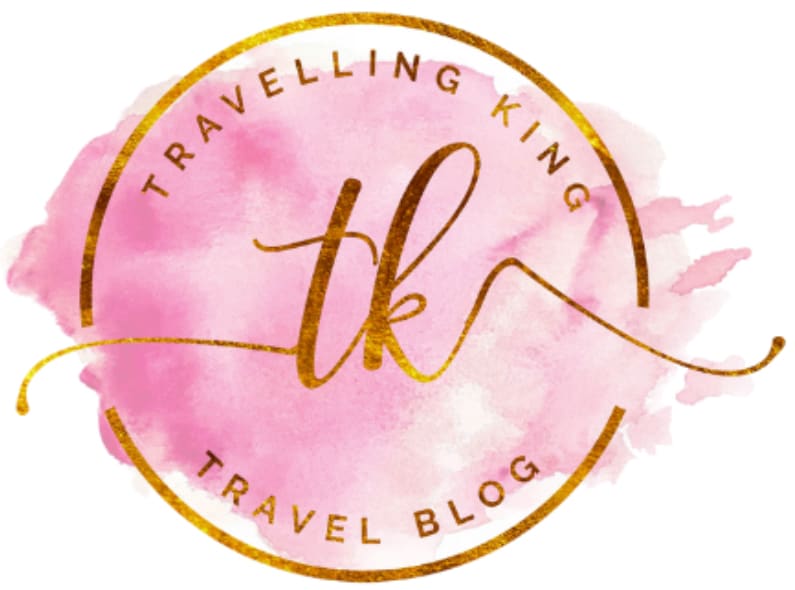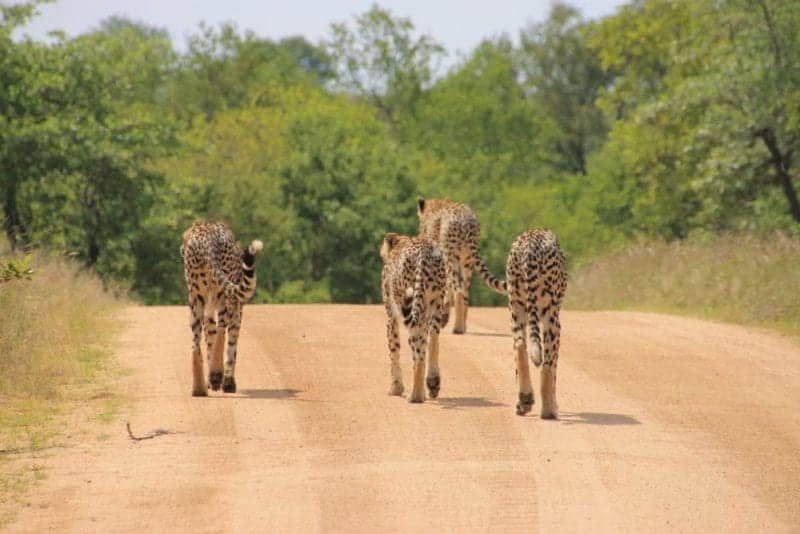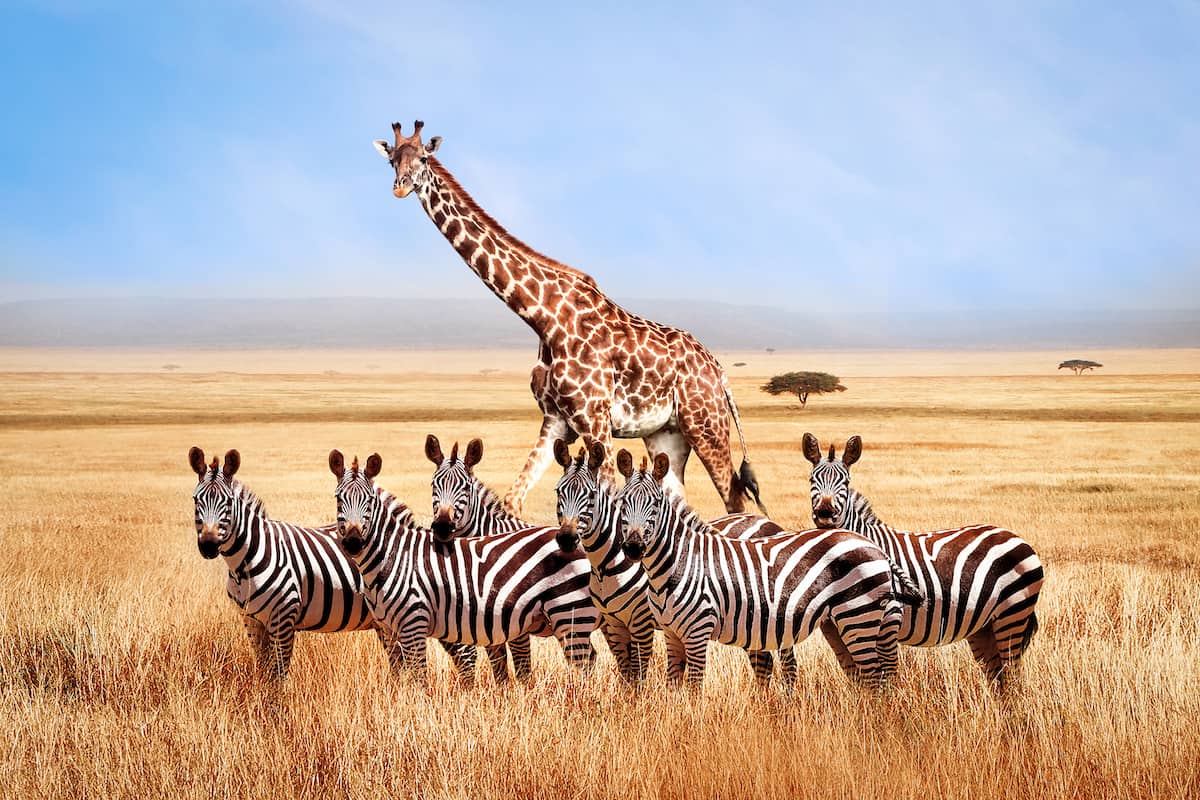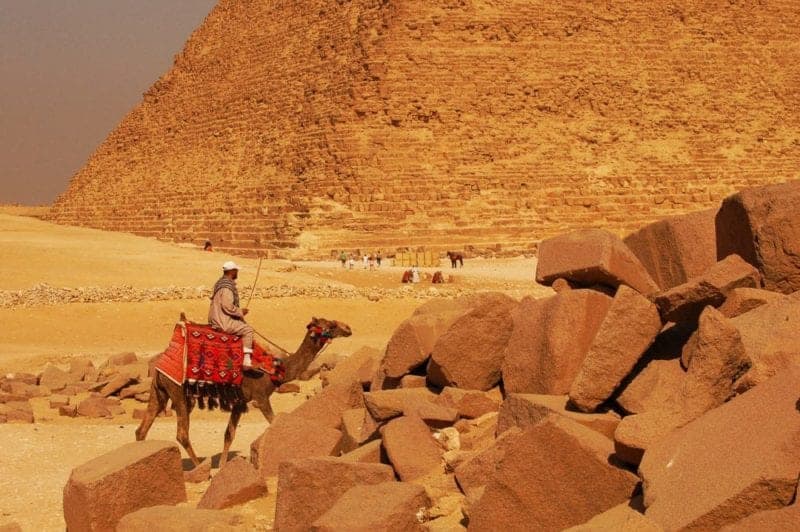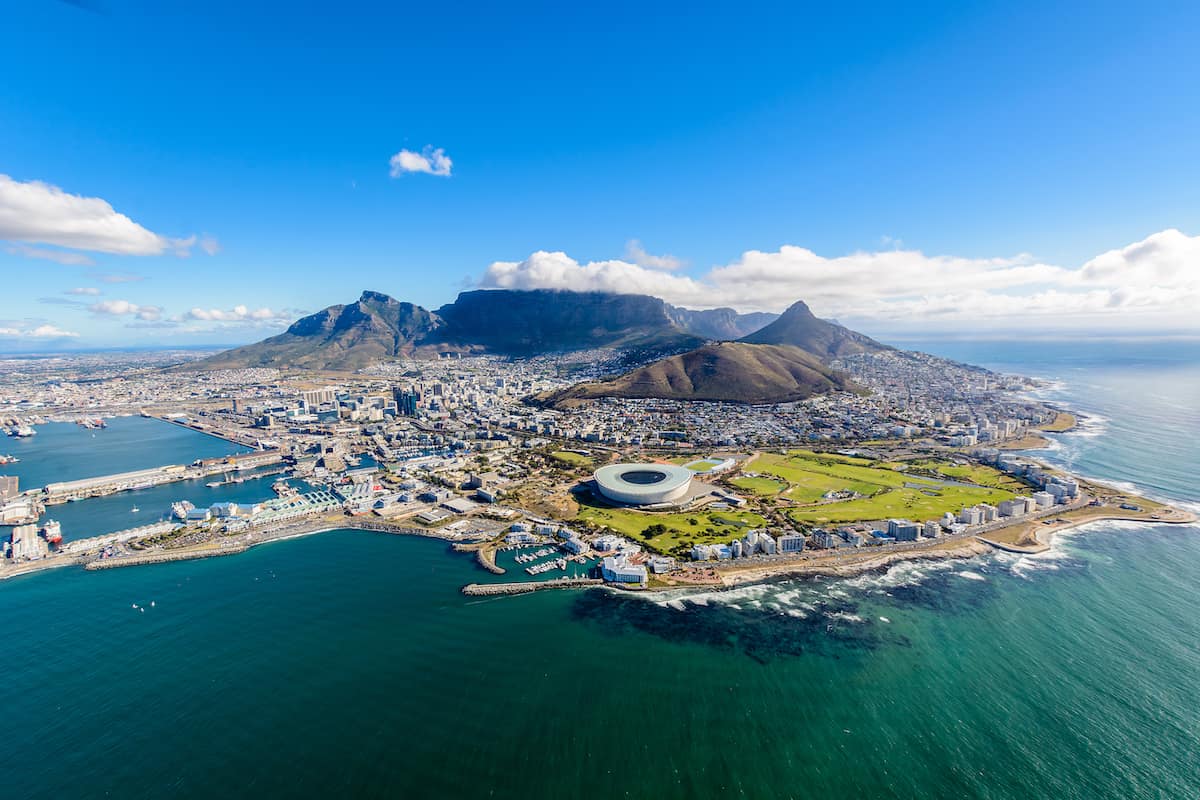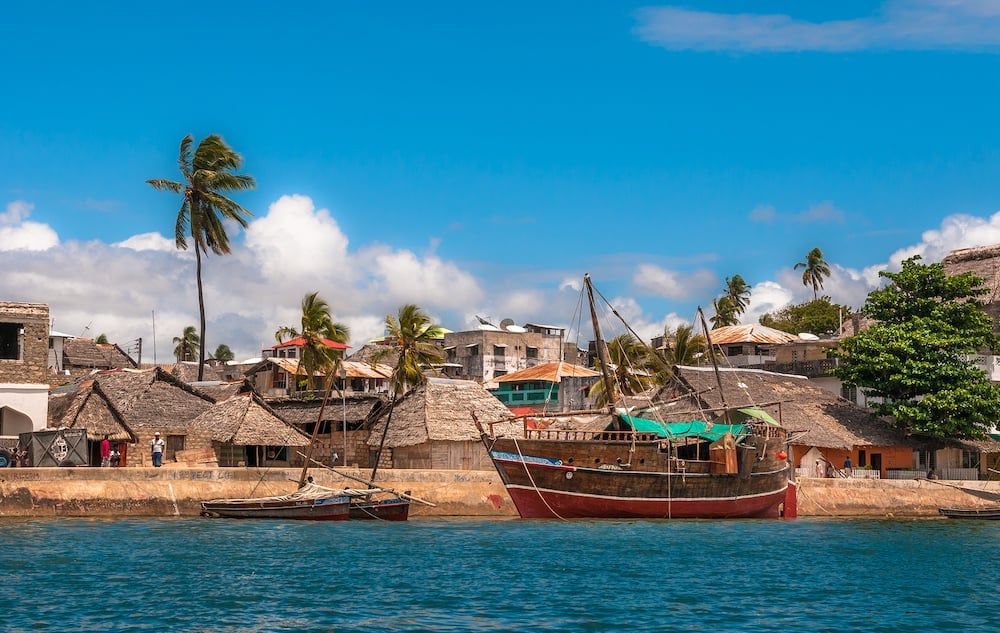Travel Safety Tips For South Africa
No matter where you decide to travel in the world, it’s always necessary to do at least some research on the expectations of the chosen area.
Basic safety precautions and awareness of your surroundings are key elements in creating the best and safest travel experience for you and your family.
To start, obtaining travel insurance before you go anywhere is a safe and secure decision since private health care in South Africa can cost a pretty penny.
This article provides fifteen travel safety tips to help you throughout your trip and give you a greater sense of comfort, safety and security. Coming from a South African, born and bred, the advice provided is not just from first-hand experience but also proven to aid you throughout your visit to many different areas around South Africa.
Keeping yourself and the others around you safe is number one. Be smart about what you do, don’t tempt fate and keep your eyes open. South Africans have gone through a lot of hardship over the years, from a disfigured economy to an inter-racial civil war which has left many prepared to do anything for a plate of food.
They know how the game works, and it’s up to you to stay on top of it all. That being said, we are proudly South African, and between the crime and the unfortunate circumstances, you will meet a community full of culture, love and support.
South Africans love to share and are always ready to step in and help. It is a lovely place, a diverse nation with a very intense background that still comes together to this day. Between the mess, the politics, the government, the health care and the poverty, it is a beautiful country with much to offer.
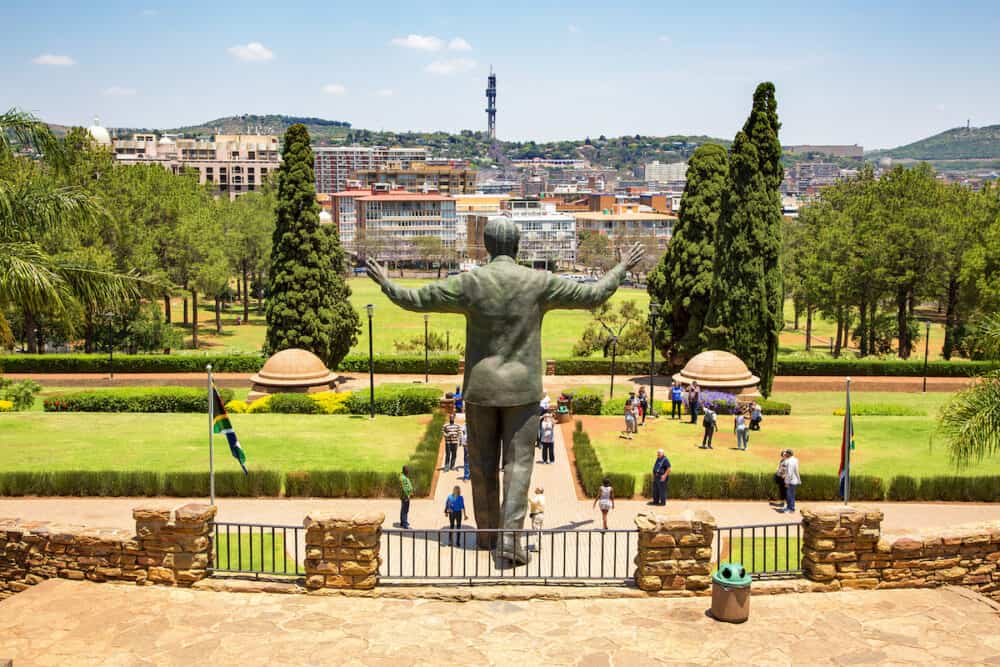
South Africa is safe, and you can make it as such by avoiding any unfortunate mishaps and crime-orientated situations by being alert, cautious, confident and avoiding high-risk areas. Like any country, South Africa has its bad side, which many love to point out, but understanding the place before you get there can help solve many future problems.
Yes, you may have to keep your car locked at all times, and no, you can’t go walking around the city at night, which is a significant shame; everything this country has to offer makes up for the slightly altered lifestyle you will have to accept during your stay.
Tourists in South Africa are targets of petty crime and quick scams. It is a country known for violence, but keeping yourself in check and staying in the right areas will fast-track you to probably one of your best holidays.
Are you more of a city person? Do you want to be close to the ocean? Maybe you prefer being surrounded by mountains? This makes South Africa unique; it offers a multitude of different topographies and settings that suit everyone’s needs and preferences.
Cape Town, for instance, is a great all-rounder, offering scenic views (literally everywhere), beautifully sculpted mountain ranges, incredible wineries and historic areas, all dipped in culture. Johannesburg provides an in-depth look into our city life, with various game parks and safaris on its outskirts.
Whichever areas you plan to visit, be sure to go through the safety tips provided below!
Plan your trip
Save on fees abroad with the Wise Card—use it at ATMs, restaurants, and for flights or hotels in over 150 countries. Manage 40+ currencies in real-time with the Wise app.
Need Help Planning?
- Cheap Flights: Find the best deals.
- Accommodation: From hostels to luxury stays.
- Car Rental: Affordable options worldwide.
- Sightseeing Tours: Explore without breaking the bank.
- Travel Adapter: One adapter for all your needs.
- Travel Insurance: Don’t risk it—stay covered.
This post includes affiliate links. Read my full disclosure and content policy.
Safety tip #1: Crime
‘Is South Africa dangerous?’
Yes, South Africa has a high crime rate, especially in major cities. Experiencing criminal activity can happen at any given time. Still, there are specific areas that are best to avoid, like townships, isolated beaches, picnic spots, dark streets and entertainment areas that cater more to the people of the rural community.
Muggings, armed assaults, petty theft, hijacking and other general crimes can happen frequently in popular tourist areas. Local con artists aim for wandering tourists, especially at large transport hubs such as bus stations and airports.
Violent crimes do take place but in less popular areas. We have the South African Police Service (SAPS) trying to lessen the rate, initiating specific warnings for different provinces. Still, it’s always good to try to protect yourself first and the others around you.
Do your research before travelling by using official government travel advisories and check recent articles for crimes that have taken place. Choose safe areas and neighbourhoods with a good reputation for secure accommodation and reliable transportation.
Move valuable items like passports, jewellery, and expensive electronics to a safe location, such as a hotel safe. Keep an eye on your belongings, be cautious of pickpockets by being aware of your surroundings, and avoid walking alone at night.
Dress modestly in certain areas, and avoid discussing sensitive topics that could lead to misunderstandings or conflicts.
To name a couple of others, avoid using mini-buses and non-metered taxis. Be careful about using hiking trails, especially by yourself.
Keep your windows closed when stopping at red lights; people only take seconds to grab your bag or other valuable items from the seat. Don’t leave your drinks alone; spiking became big in South Africa a few years ago.
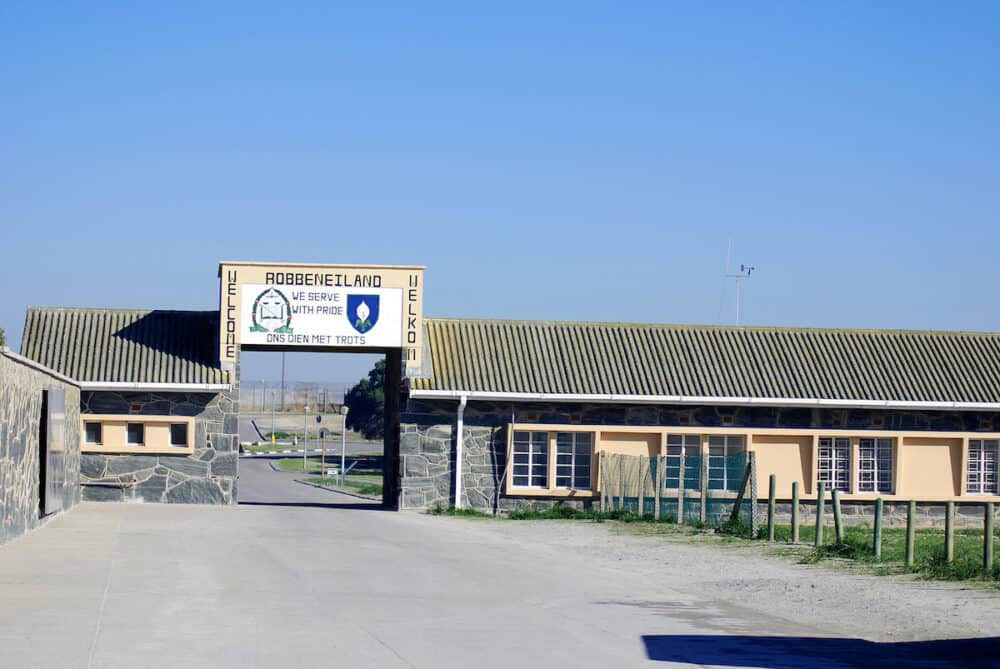
Safety tip #2: Travel Smart
At the end of the day, it is up to us to use our common sense to keep us going. The idea is to travel smarter. South African con artists have had a lot of practice in stealing, mugging and many other types of crime.
Travelling smartly and safely during your trip to South Africa requires careful planning, awareness, and proactive measures.
Travel with a cell phone! Make sure your phone will work in South Africa before you leave, or you can easily buy a sim card on arrival at the airport. Save all the appropriate numbers in your phone, like the emergency number for the police (10111) and be sure to keep it charged at all times.
Research your destination thoroughly and check reviews and comments made by other people on places you plan to visit. Read about the cultural norms, local customs and any recent news that may be important to you.
Plan your itinerary in advance, stick to well-known tourist areas and use reputable accommodations.
Invest in travel insurance that covers any medical emergencies, trip cancellations and personal belongings. Please keep copies of important documents, and store them separately from the originals.
Safety tip #3: ATMs and Credit Cards
Carrying large amounts of money is never a good idea. Thankfully, you have ATMs and cash machines available almost everywhere. Many of them are in safe locations, whilst others are not.
It’s better to be safe than sorry; use machines in businesses and banks rather than ones off the street. You can also draw cash from supermarkets, which is a much safer option than carrying around large amounts or using street cash machines.
Credit card transactions should always be processed in your presence, and be alert at all times if you see anything suspicious; instead, stop your transaction and leave.
Never allow someone to come close to you, shield the keypad and do not accept help from a stranger, don’t even look up if someone wants to know the time. If they mention it’s broken and you should use a different one, don’t trust them and find a different machine.
Keep a backup credit card with you in emergencies, especially if a machine decides to swallow it up. Keep this one in your hotel safe, don’t carry both on you.
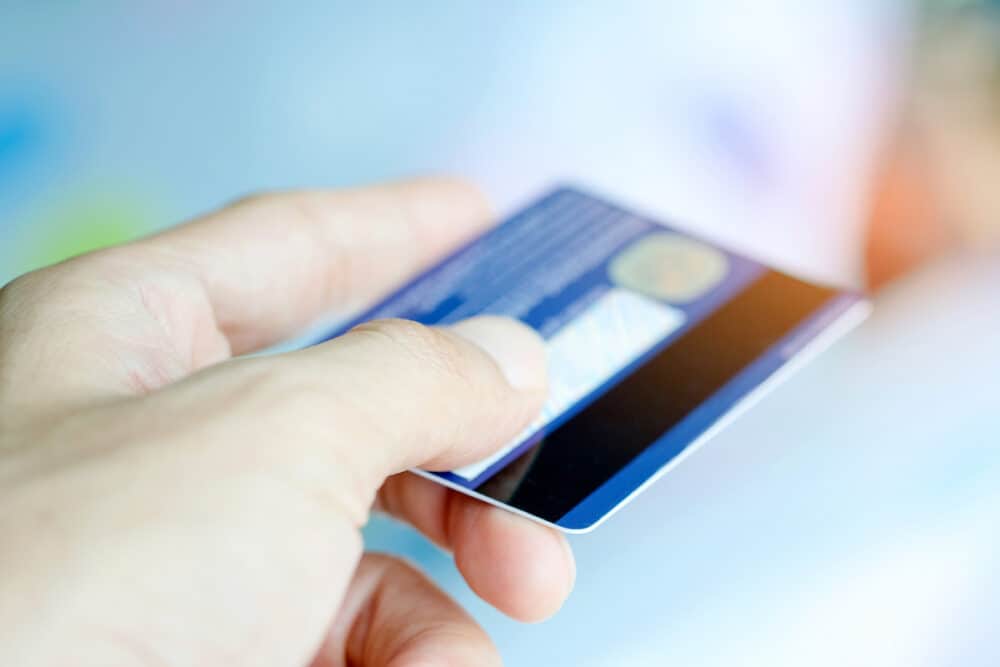
Safety tip #4: Car Guards
Unlike most countries, South Africa has a ridiculous amount of car guards that you will find lurking around car parks and parking bays.
Due to so many people from the townships and rural areas struggling to find jobs, some took to the roads and shops to ‘look after’ parked cars and assist people in backing out.
Before driving away, they would ask you for money for their services. Eventually, businesses hired them, making it official over time as they weren’t going away. Keep an eye open for car guards with official bibs, as they are employed and the ones you can trust.
Our car guards, in general, are pretty decent. At most, they can become intense if you refuse to pay them, which you have every right to do.
Just be wary if you see any of them looking dodgy nearby. If you’re worried, then ask store security or someone who works there to walk you back to your car.
The car guards tend to call others about details regarding what you look like, who you are, what the car looks like, and what type, so make sure you lock all the doors and remove any valuable things that may interest others.
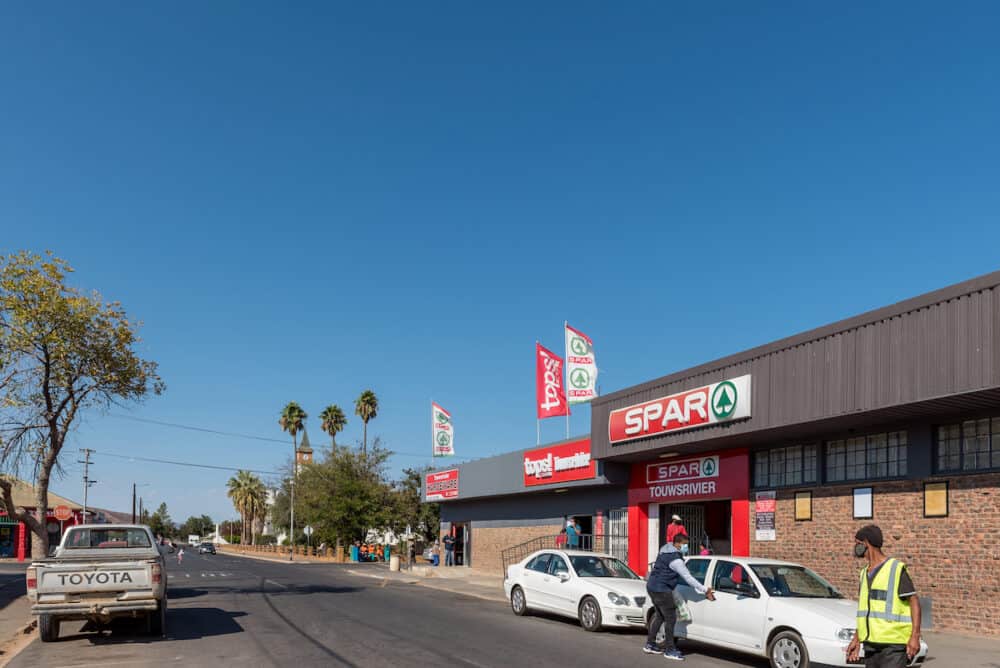
Safety tip #5: Scams
“Is South Africa safe for tourists from scammers?”
Well, no, but you can be smart about it! It’s best to do everything carefully and not allow ignorance or naivety to get the better of you, and put you in situations you will most likely regret.
As I previously mentioned, ATMs are one of the typical scam practices. They tend to work in a team, and it’s usually done from pin exposure.
Wearing backpacks during your walks, especially in cities, is not the best idea since they are easy targets for trained pickpocketers who can quickly grab your wallet without you knowing. Keep your items to the bare minimum; valuables should be around your neck or in a hip bag or left at your hotel.
Look out for people posing as agents or staff at airports who ask if you need assistance or pose as taxi drivers that may drive you off-route, ask you for money and steal your luggage. It’s always best to talk to official people in the airport at desks or stick to services you see other tourists using.
People on the street can make out they are in distress, faking an illness or need money for their father’s funeral and, in the process of helping them, could steal any of your items or they are simply scamming you out of money.
Safety tip #6: Airport Robberies
Airports are popular places for tourist attacks in South Africa. They are the main hubs for international travel and a significant source of consistent money flow for scam artists, thieves and criminals.
Surprisingly, luggage theft is ridiculously high in Tambo International Airport, and even employees may steal valuables after x-ray scanning checked-in baggage. Pack important items in your carry-on and consider getting your bags wrapped in cling wrap.
Thieves hang around terminals, waiting to follow you to your car. Use reputable taxi services or even call Uber, a cheap and reliable source of transportation used around South Africa.
When seeking directions, use the marked information counters. Don’t take on people standing around suspiciously or trying to get your attention.
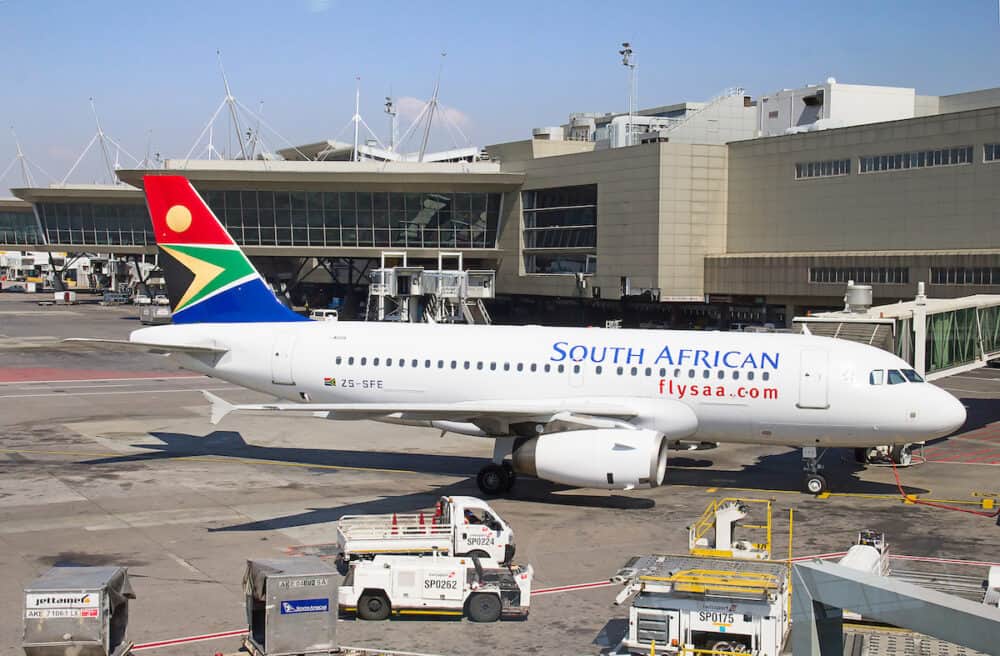
Safety tip #7: Wild Animals
If you’ve seen The Lion King, you’ll know exactly what type of wild animals to expect walking the beautiful grounds of our game parks.
Visiting the famous ‘Big 5’ is a popular activity most tourists experience when travelling to South Africa. Tourists aren’t used to seeing such incredible animals, especially because of their size and speed.
Please, never feed wild animals! I know you want to, but it’s best not to. Don’t interact with them, even the cute baboons you see on the road. It leads to bad behaviour and the possibility of a scary situation. Stay inside the car and keep the windows up when driving through game parks.
Follow the instructions provided and keep a safe distance from all animals. Elephants, rhinos and hippos have been known to charge and attack cars that come too close or provoke them.
Remember, these are wild animals, and you are in their territory! Remain silent, stop the car and enjoy the simple pleasure of observing nature at her best.
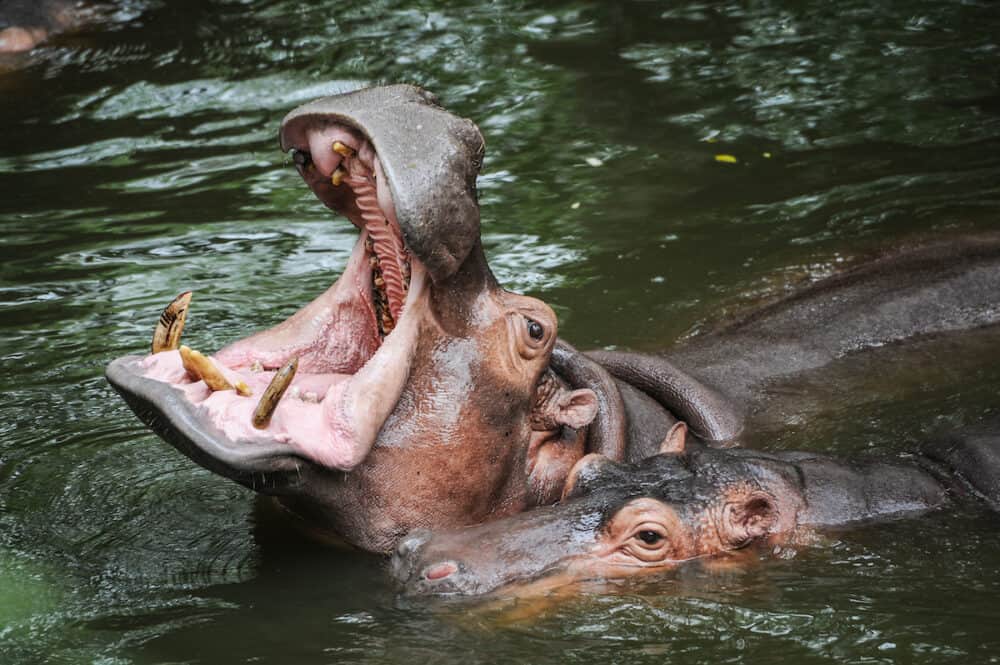
Safety tip #8: Driving
If you think Italy has crazy drivers, welcome to South Africa and the minibus mafia that rules the roads of all the big cities. If you plan to brave these roads, you should know about some dangerous driving and general driving tips.
You will be challenged on these roads, and it’s best to research before deciding to drive yourself around. Uber is cheap in South Africa, and unless you’re planning a day trip, I would stick to Ubering or taking a tour over non-metered taxis.
You will come across aggressive drivers, poor street lighting, odd street signs and pedestrians who tend to rush out into traffic without using the typical “look left and right” before crossing.
Don’t be surprised if you see animals crossing the street, from dogs to mongeese; frantic little road runners are common. In more rural areas, farmers herding cattle use the road just as much as we do occasionally. Just be alert, always!
Carjacking does happen, especially in Johannesburg, don’t stop at stop streets for too long and make sure there is enough space between you and other cars in traffic. Whilst you’re stuck, criminals use a box-in method to grab whatever they can.
Always lock your car doors as soon as you get in; if attacked, stay in your car and drive off as quickly as possible.
You will find large distances between cities and surrounding areas with few gas/petrol stations, be sure to fill your tank up whenever possible. You can even go to the next step and keep an extra gas tin in your car for emergencies. Check your car and ensure it’s in good mechanical condition before any journey.
Before setting off anywhere, make sure you have a good map system. Download offline maps in case of a bad signal, and make sure your phone is charged up with a backup; you could even use a paper map as an extra security measure.
Certain towns, streets and cities are currently under name changes, so do research and update any apps you plan to use.
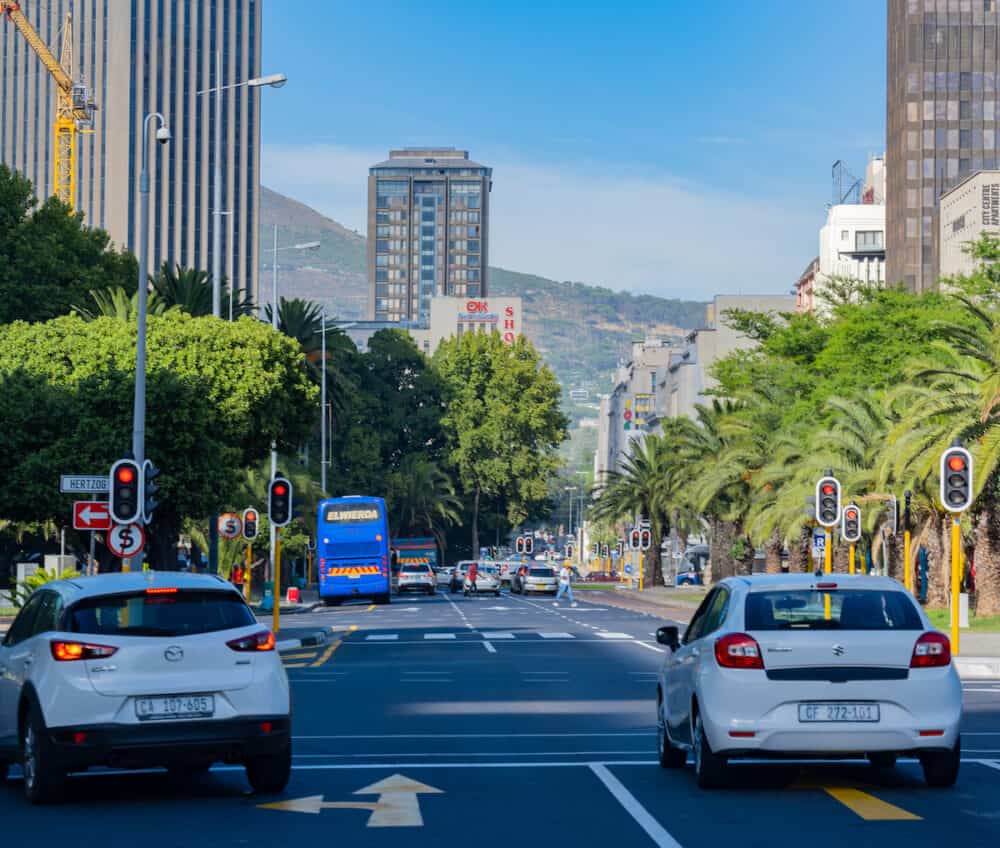
Safety tip #9: Traveling at Night
“Is South Africa dangerous to walk around at night?”
Unfortunately, it is one of those countries where you can’t walk up and down streets at night, especially by yourself. Unless you’re with a large group, I would organize a taxi even if the distance you’re going is short.
You can always call your hotel to organize a reliable service to take you anywhere. Rural areas around the cities are less dangerous, but I wouldn’t risk it. The same applies to beaches, the countryside, mountains, river banks and fields.
Safety tip #10: The Townships
Travel safety in South Africa is a significant factor throughout your journey. At some point, you may drive to different areas and on your way, you will come across townships that sit next to our roads.
Townships are large underdeveloped urban areas used to segregate racial living arrangements, created initially during apartheid.
If you are driving, avoid going into townships and putting yourself in a dangerous situation unless you are part of a township tour.
You can organize these tours through your hotel or a reliable local. These tours offer a great cultural insight into the lifestyle and history behind townships and their local residents.
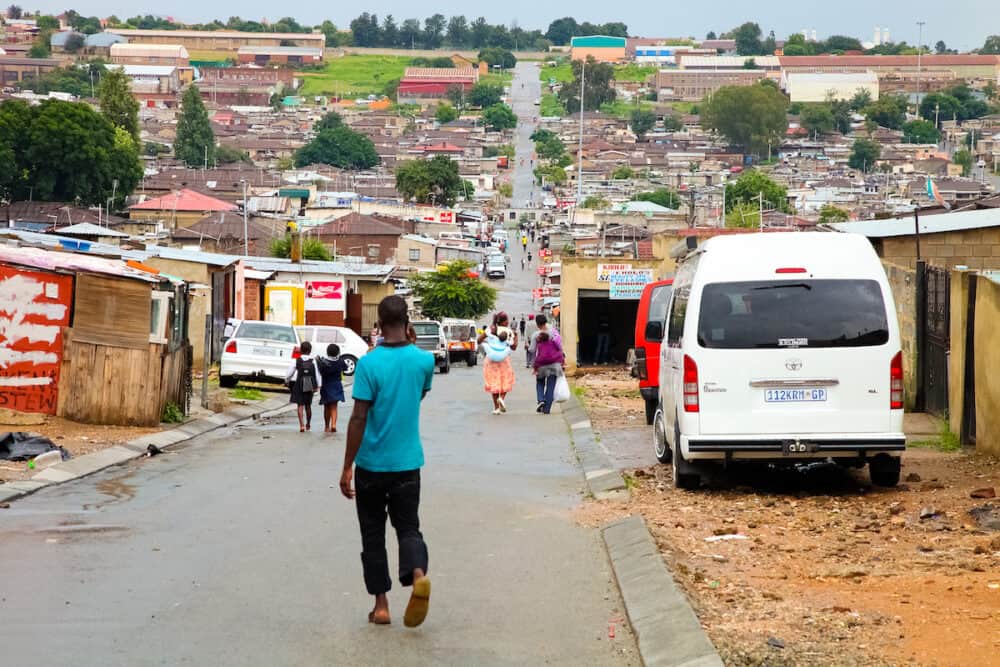
Safety tip #11: Car Safety
We briefly reviewed driving tips earlier, but car safety is another story and an important factor during your travels in South Africa, where safety is concerned. Keep everything locked, and choose your moments wisely when lowering your windows.
The reason for this is begging from the street people or those trying to sell you something from your window; they tend to set up shop close to traffic lights (or, as South Africans call them, Robots).
Don’t get me wrong, if you see something you like, buy it. It’s excellent when tourists support local products, and they don’t usually mean any harm by it, but they can become insistent and pushy at times.
If you are hijacked or robbed, try your best to keep calm, cooperate as much as possible, and do not resist. Let them take what they want and go when they’re ready; once they have gone, you can call the police or someone for help.
Resisting, cursing or shouting increases the chances of escalation to violence. Stay calm, and don’t fight them. Trying to get away can also end in tragedy. At the end of the day, everything is replaceable, but your life is not.
If someone in uniform comes up to your window, fining you for whatever reason, request a ticket and do not give them cash. Corruption and bribery is high in South Africa.
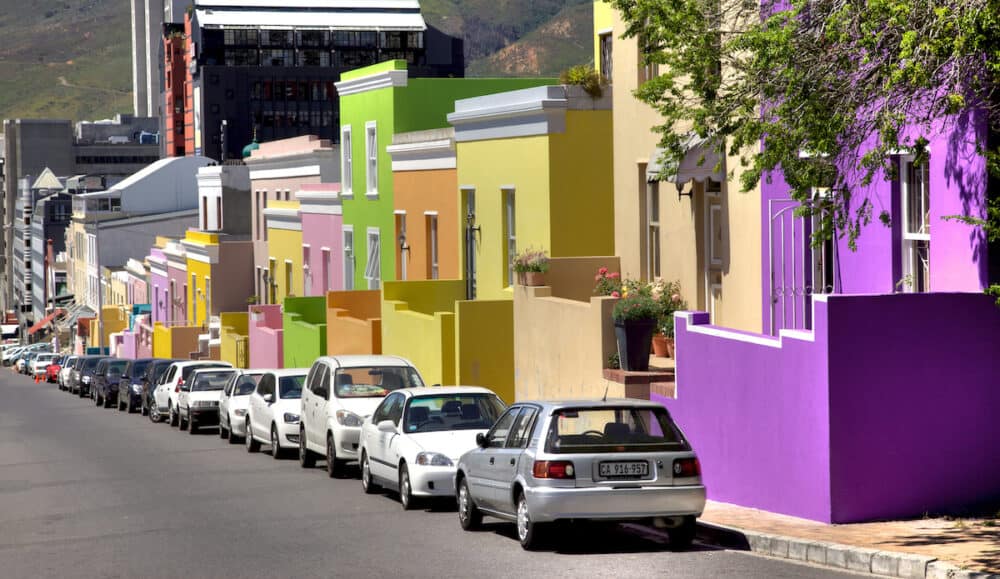
Safety tip #12: Your Hotel
Whether you are staying at a hotel or a guesthouse, leave your passports, flight tickets and any other valuables in a safety deposit box in your room or at reception. Include copies of credit, debit cards and other important documents in case of emergencies.
Keep your hotel room locked and secure at all times, and only open the door if you know who it is on the other side. Call reception if you have any reason for concern. Ask for a receipt if you have stored your luggage with reception, and never leave valuables unattended in any public space.
Safety tip #13: The Police
If you are approached by a South African police officer for whatever reason, you have every right to request an identification card stating their name, rank, service number and photograph. That goes for any civilian that comes up asking anything of you.
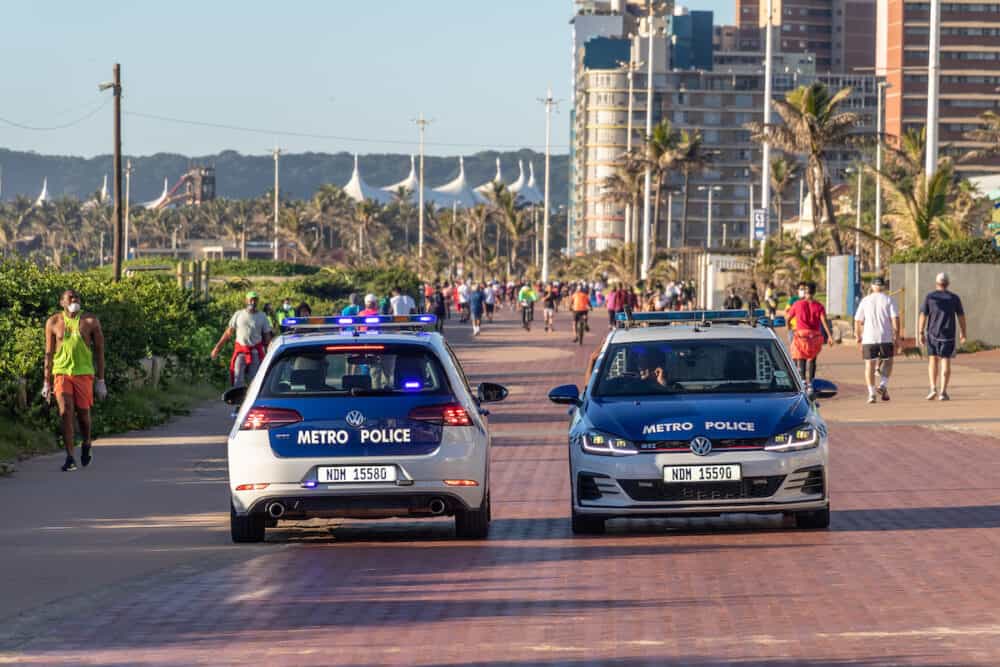
Safety tip #14: The Wild Coast
Our coastlines in South Africa are beautiful and vast, with a lot going on underneath the water. You have most likely heard about the shark-infested waters that place like Durban, and Cape Town have a reputation for, which is true to a point, but it is not as scary and intense as some make it out to be.
All of the beaches with shark sightings are flagged with different coloured flags and a shark on them representing different situations to allow the public to understand what’s going on.
Another need-to-know fact about our waters are the strong currents and swells we get along our shores. While it’s great for surfing, it’s not suitable for weak swimmers and those who can’t handle themselves in water. Most of our famous beaches among locals and visitors will have lifeguards on hand for emergencies.
Many of our beaches are lined with dunes offering picturesque scenery and sheltered opportunities away from the strong winds that pick up from time to time. Just be aware that dunes further away from towns have a higher chance of attracting homeless people.

Safety tip #15: In Case of Emergencies
In and around the cities, you will find high-quality medical facilities that cater to most, with services any first-world hospital can offer. Outside main urban areas, there is a significant variation in quality and available services.
In more remote places, hospitals demand travellers to pay upfront. If their injury or sickness is terrible, they may need an expensive medical evacuation to a city hospital.
Research the different illnesses or diseases you can pick up in each area and ensure you are always close to a hospital or doctors, especially when travelling with a family.
Always have travel insurance to ensure that you are protected if something happens or if you get sick.
FAQs About is south africa safe for tourists
is south africa safe for white tourists
South Africa is generally considered safe for white tourists, although there are certain areas it is advisable to avoid. The country has a wide range of attractions ranging from vibrant cities, lush beaches and wildlife safaris.
It is however important to exercise caution when travelling in South Africa and take normal security precautions such as avoiding walking alone at night, keeping your valuables secure, and staying alert in crowded places.
Travellers should also stay away from political rallies and the townships as these can become dangerous in some circumstances. Overall though, South Africa is an amazing destination with plenty to offer all tourists regardless of their skin colour or background.
how do i not get mugged in south africa
South Africa is a beautiful country full of friendly people and amazing sites. However, it’s a good idea to take some precautions to ensure your safety while travelling. Here are a few tips to help you avoid getting mugged in South Africa:
– Stay in populated areas, such as hotels or hostels. Avoid isolated routes and walking alone at night.
– Don’t carry large amounts of cash or valuables with you when out and about. Make sure not to leave your belongings unattended at any time and keep them close by at all times.
– Be aware of pickpockets in crowded areas like markets and bus terminals. Make sure your bags have zippers or locks to secure them.
– Don’t display expensive jewelry that could draw attention to yourself as a potential target for theft.
– If possible, travel with someone you know who speaks the local language and knows the area well so they can guide you safely through certain areas.
So by following these simple tips, you should be able to travel safely throughout South Africa without worry!
is south africa safe for american tourists
South Africa is generally safe for American tourists. However, there are certain areas that should be avoided due to high levels of crime and poverty.
It’s important for visitors to exercise caution when traveling around the country, as pickpocketing and petty theft can still occur in some cities.
Additionally, American visitors should research the local laws before visiting South Africa, as some activities may be prohibited by law. Overall, if travelers take necessary precautions and plan their trip wisely, they can enjoy a safe and secure experience in South Africa.
Final Thoughts: safety tips for tourists to south africa
After all of that, travelling to South Africa is an excellent choice for what could be the best holiday of your life. With all it has to offer, from culture to history, vast oceans to impressive mountain ranges, this rainbow nation is an all-in-one package.
After reading everything mentioned above, it seems a little daunting, but it can be safe to travel to South Africa. It requires a little research and updated information before your trip – common sense helps a lot as well.
It is a beautiful country to visit, offering the smoothest and best experience for you and your family.
Read More about South Africa:

